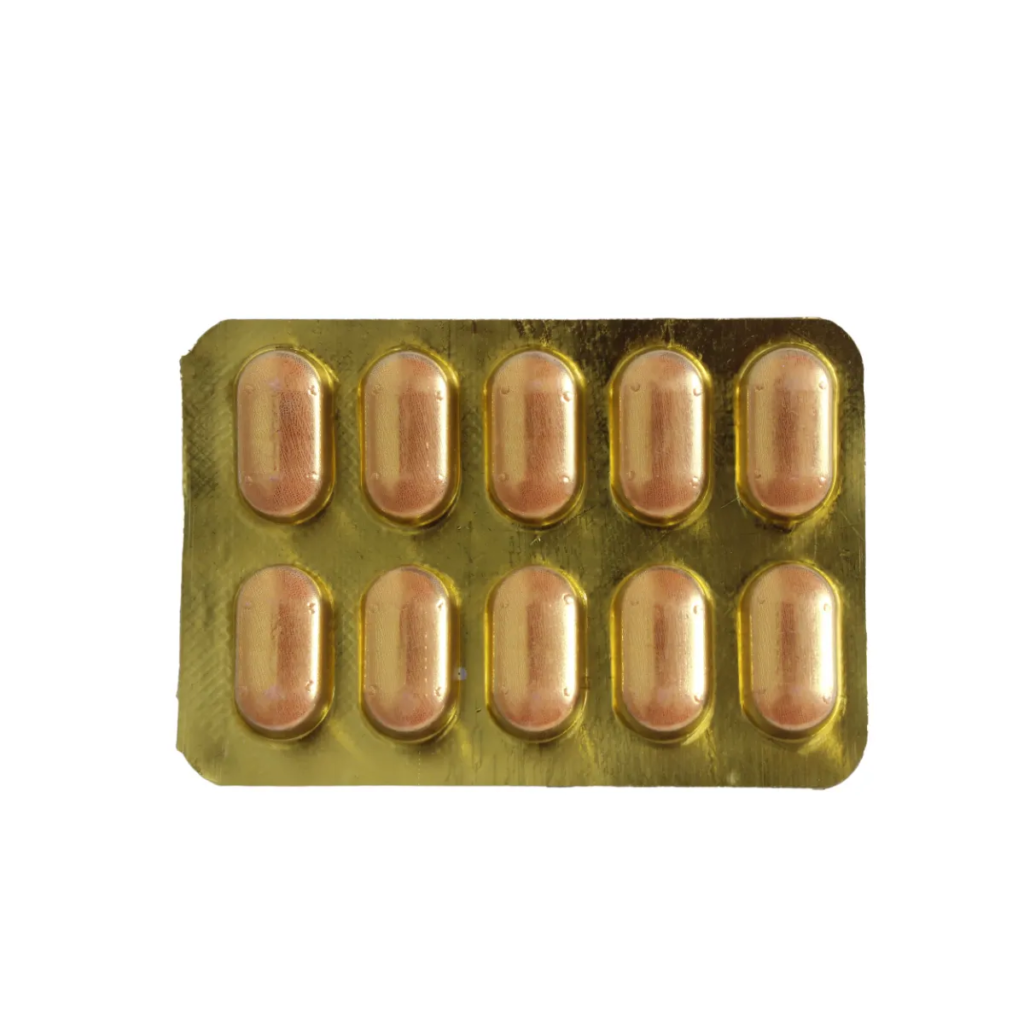Welcome to the world of Nimucet tablets, a pharmaceutical product that offers relief from these everyday ailments. As you embark on this informative journey, prepare to uncover the secrets of a remarkable blend of science and compassion that seeks to improve your well-being.
With its carefully curated ingredients and cutting-edge formulation, Nimucet tablet offers a glimmer of hope in moments of distress, promising to be your reliable companion on the path to relief. So, brace yourself for an exploration of this captivating tablet, as we delve into its story, without any bias or promotion, to bring you a clear and engaging understanding of its purpose and potential. In this article, we will delve into the details of Nimucet tablet uses, side effects, precautions, dosage, and more.

Nimucet Tablet Uses
When it comes to finding relief from pain and discomfort, Nimucet tablet is a trusted solution that offers several beneficial uses. Let’s explore the Nimucet tablet uses and benefits for pain management.
1. Rapid Pain Relief: Nimucet tablet acts quickly to alleviate various types of pain, including headaches, muscle aches, dental pain, and menstrual pain. Its powerful analgesic properties help reduce pain intensity, allowing individuals to experience fast and effective relief.
2. Anti-inflammatory Action: In addition to its pain-relieving effects, Nimucet tablet also possesses anti-inflammatory properties. It can reduce inflammation in conditions such as joint pain, swelling, and sports injuries, promoting faster healing and improved mobility.
3. Fever Reduction: Nimucet tablet contains paracetamol, which is effective in reducing fever. It helps bring down elevated body temperature caused by infections or other factors, providing comfort and aiding the body’s natural healing process.
4. Versatile Pain Relief: Whether it’s a mild headache or severe toothache, Nimucet tablet is a versatile option for pain relief. Its broad spectrum of uses makes it suitable for various types of pain, making it a convenient choice for individuals seeking relief from different discomforts.
5. Improved Quality of Life: By alleviating pain and discomfort, Nimucet tablet uses significantly improves an individual’s quality of life. It allows individuals to perform daily activities without hindrance, enhancing productivity, and overall well-being.
6. Easy Accessibility: Nimucet tablet is available over-the-counter, making it easily accessible to individuals in need of pain relief. Its widespread availability ensures that people can obtain it promptly when they require relief from pain or discomfort.
Incorporating Nimucet tablet into your pain management routine can provide the uses and benefits mentioned above, helping you find the relief you seek. However, it is important to remember that Nimucet tablet should be used responsibly, following the recommended dosage and precautions to ensure safe and effective use.
Possible Side Effects: Understanding the Risks
When considering any medication, it is important to be aware of potential side effects. Nimucet tablet, while generally well-tolerated, may carry some risks. It is crucial to understand these possible side effects before using the medication.
1. Nausea and Stomach Upset
One of the common side effects associated with Nimucet tablet is nausea and stomach upset. Some individuals may experience discomfort, indigestion, or an unsettled stomach after taking the medication. If these symptoms persist or worsen, it is advisable to consult a healthcare professional.
2. Dizziness
Nimucet tablet may cause dizziness in some individuals. This can affect coordination and impair the ability to perform certain tasks. It is recommended to avoid activities that require alertness, such as driving or operating machinery, if dizziness occurs after taking the medication.
3. Skin Rash and Allergic Reactions
While rare, Nimucet tablet can trigger allergic reactions in certain individuals. Skin rashes, itching, or hives may develop as a result. It is important to seek immediate medical attention if any signs of an allergic reaction occur, as severe reactions can be life-threatening.
4. Liver and Kidney Problems
In rare cases, Nimucet tablet may cause liver or kidney problems. These adverse effects can manifest as yellowing of the skin or eyes (jaundice), dark urine, or persistent abdominal pain. It is crucial to promptly report any such symptoms to a healthcare professional for evaluation.
5. Other Potential Side Effects
There may be other less common side effects associated with Nimucet tablet, such as headache, blurred vision, or ringing in the ears. While these occurrences are rare, it is important to monitor and report any unusual symptoms to a healthcare professional.
It is essential to note that these side effects are not exhaustive, and individual experiences may vary. To minimize the risks associated with Nimucet tablet, it is advisable to follow the recommended dosage and consult a healthcare professional if any unexpected symptoms arise.
Remember, the benefits of Nimucet tablet in providing relief from pain and discomfort often outweigh the potential side effects. However, it is crucial to prioritize your well-being and seek medical advice if you have any concerns or questions regarding the use of this medication.

Composition of Nimucet Tablet
Nimucet tablet is a popular over-the-counter medication designed to alleviate pain and reduce inflammation. It combines two active ingredients, namely nimuselide and paracetamol, which work synergistically to provide effective relief. Nimuselide is a nonsteroidal anti-inflammatory drug (NSAID) known for its analgesic and anti-inflammatory properties. Paracetamol, on the other hand, acts as a pain reliever and fever reducer.
Precautions and Warnings: Safely Using Nimucet Tablet
When it comes to using Nimucet tablet for pain relief, taking necessary precautions and being aware of potential warnings is crucial to ensure safe usage. Here are some important precautions and warnings to consider before using Nimucet tablet:
1. Medical History and Allergies: Before starting Nimucet tablet, it is essential to disclose your complete medical history, including any allergies or past adverse reactions to medications. This information helps your healthcare provider determine if Nimucet tablet is suitable for you.
2. Existing Medical Conditions: Individuals with pre-existing medical conditions such as liver or kidney disease, stomach ulcers, bleeding disorders, or asthma should exercise caution when using Nimucet tablet. Consultation with a healthcare professional is advised in such cases.
3. Concurrent Medications: Inform your healthcare provider about all medications you are currently taking, including prescription drugs, over-the-counter medications, and herbal supplements. Some medications may interact with Nimucet tablet and lead to potential complications.
4. Pregnancy and Nursing: Pregnant or breastfeeding women should consult their healthcare professional before using Nimucet tablet. The medication may have potential risks and should be used only under medical supervision.
5. Children and Elderly: Nimucet tablet uses may not be suitable for children below a certain age. The dosage and safety for children should be determined by a healthcare professional. Similarly, the elderly population may require adjusted dosages due to age-related factors.
6. Alcohol Consumption: Avoid consuming alcohol while using Nimucet tablet. Alcohol can increase the risk of side effects and may interfere with the medication’s effectiveness.
7. Driving and Operating Machinery: Nimucet tablet may cause dizziness or drowsiness in some individuals. It is important to assess your individual response to the medication before driving or operating heavy machinery. If you experience such side effects, avoid activities that require alertness.
8. Overdose Risk: Adhere strictly to the recommended dosage instructions provided by your healthcare professional or as mentioned on the package insert. Overdosing on Nimucet tablet can lead to serious health complications and should be avoided at all costs.
9. Allergic Reactions: If you experience any signs of an allergic reaction such as hives, difficulty breathing, swelling of the face or throat, or severe skin rash, discontinue the use of Nimucet tablet and seek immediate medical attention.
Taking these precautions and being aware of the associated warnings can help ensure the safe and effective usage of Nimucet tablet for pain relief. Remember, always consult a healthcare professional for personalized advice and guidance.

Dosage Instructions: Finding the Right Balance
Proper dosage is crucial when using Nimucet tablet to ensure effective pain relief without risking potential side effects. Follow these dosage instructions carefully to find the right balance for your needs:
1. Consult a Healthcare Professional: Before starting Nimucet tablet, it’s important to consult a healthcare professional who can assess your condition and provide personalized dosage recommendations based on factors such as age, weight, and the severity of the pain.
2. Read the Package Insert: Always read the package insert or label provided with Nimucet tablet. It contains important information regarding dosage guidelines, precautions, and potential interactions with other medications.
3. Follow the Recommended Dosage: Adhere to the recommended dosage instructions provided by your healthcare professional or as indicated on the package insert. Avoid exceeding the recommended dose to prevent potential complications.
4. Take with Water: Swallow the Nimucet tablet whole with a glass of water. Do not crush, chew, or break the tablet unless specifically instructed to do so.
5. Consider the Dosage Frequency: Nimucet tablet is typically taken every 8 to 12 hours. Follow the recommended dosage frequency to maintain a steady level of pain relief throughout the day. Do not take more tablets than advised within a 24-hour period.
6. Avoid Altered Dosages: Do not alter the dosage without consulting your healthcare professional. Changing the dosage can lead to ineffective pain relief or increase the risk of side effects. Always seek medical guidance before making any adjustments.
7. Consider Meal Timing: Nimucet tablet can be taken with or without food. However, if you experience stomach upset, taking it with a meal or after eating may help alleviate discomfort.
8. Maintain Proper Timing: Take Nimucet tablet at regular intervals as directed. This ensures a consistent level of the medication in your system, providing continuous relief from pain and discomfort.
9. Use a Measuring Device: When administering liquid Nimucet formulations, use a measuring device to ensure accurate dosage. Avoid using regular household spoons, as they may not provide precise measurements.
10. Be Mindful of Combination Products: Nimucet may be present in combination products with other active ingredients. Pay attention to the specific dosage instructions and warnings for these formulations, as they may differ from standalone Nimucet tablets.
11. Avoid Alcohol: It is advisable to avoid consuming alcohol while taking Nimucet tablet. Alcohol can increase the risk of side effects and may interact negatively with the medication.
12. Report Any Adverse Effects: If you experience any unexpected or severe side effects while taking Nimucet tablet, promptly inform your healthcare professional. They can assess your condition and make necessary adjustments to the dosage or recommend an alternative treatment.
13. Store Properly: Store Nimucet tablet in a cool, dry place, away from direct sunlight and moisture. Keep it out of the reach of children and pets.
By following these usage guidelines, you can maximize the effectiveness of Nimucet tablet while minimizing the risk of side effects and complications. Remember to consult your healthcare professional if you have any concerns or questions regarding the proper usage of this medication.
In conclusion, Nimucet tablet offers effective relief from pain and discomfort through its unique combination of nimuselide and paracetamol. By understanding Nimucet tablet uses, composition, possible side effects, precautions, and dosage instructions, individuals can make informed decisions regarding their pain management. Remember to consult a healthcare professional for personalized advice, ensuring the safe and appropriate use of Nimucet tablet or any other medication.
*Disclaimer: The information provided in this article is for informational purposes only and does not substitute professional medical advice. Always consult with a qualified healthcare professional before starting any medication or treatment.
Author Contribution: Reviewed by Dr. Ram Reddy, MD – General Physician, and Rajeshwar Rao, Pharm D.
